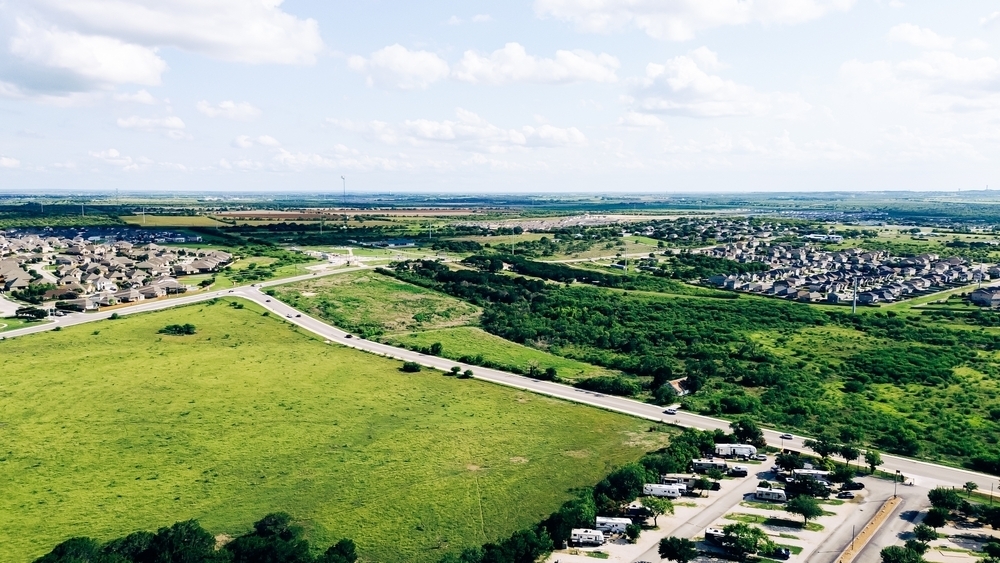views
Buying land in Texas through an auction can be an exciting and cost-effective way to invest in real estate. With vast rural tracts, commercial zones, and development-ready lots, Texas land auctions attract both seasoned investors and first-time buyers. However, bidding without proper knowledge can lead to legal issues, financial loss, or buyer’s remorse. From understanding auction rules to researching the property and verifying finances, being fully prepared is essential. Platforms like Auction Section make the process easier by offering trusted listings and transparent bidding tools—but the responsibility to bid smartly lies with the buyer. Here's what you need to know before placing a bid in a Texas land auction.

Understand the Auction Types in Texas
Texas offers several types of land auctions, each with different processes and risk levels. The most common are tax lien auctions, where counties sell land due to unpaid property taxes. Then there are foreclosure auctions, which involve properties seized by lenders after mortgage default. Lastly, online land auctions are growing rapidly, offering a user-friendly way to bid on properties remotely. Each auction type has different rules about payment timelines, buyer responsibilities, and risk factors. For instance, tax auctions often have redemption periods where the original owner can reclaim the property—something many new buyers overlook. With the Auction Section, users can explore all types of land auctions in Texas in one place, with clearly outlined terms for each property.
Research the Property Thoroughly
Before you even think about bidding, deep research into the property is crucial. This includes verifying the title status, checking for easements or encroachments, and understanding local zoning regulations. Some land may be landlocked, meaning it has no legal access to a road, which can make it practically unusable. Other parcels may have environmental restrictions, unpaid utility bills, or legal disputes that aren't disclosed upfront. A smart bidder will request surveys, tax records, and land use maps before auction day. When bidding on properties through the Auction Section, most listings include detailed documentation, photos, and often satellite views, helping you assess the land's value and potential without guesswork.
Know the Auction Rules and Requirements
Each Texas land auction has its own rules, and failing to follow them could disqualify your bid or forfeit your deposit. Some auctions require advance registration and proof of funds, while others are open to public attendance with cash in hand. Online auctions often require a credit card or certified deposit to verify bidder intent. You’ll also need to understand buyer’s premiums, payment deadlines, and title transfer timelines. Bidding without this knowledge can lead to surprises—like extra fees or missing out on a property due to a late payment. Auction Section simplifies this by listing all property-specific terms and timelines upfront, so buyers can act with confidence.
Set a Realistic Budget
While bidding can be competitive and fast-paced, it’s vital to stay within your financial limits. Create a realistic budget that includes the winning bid, buyer’s premium (often 5–10%), recording fees, taxes, and any post-purchase improvement costs. Many buyers make the mistake of only focusing on the auction price, ignoring the total cost of ownership. Also, remember that once you win a bid, you’re legally bound to follow through, so be sure your budget is solid. The Auction Section platform allows you to filter properties by price and includes fee estimates to help you plan wisely.
Verify Financing or Payment Capability
Not all auctions allow financing. In fact, most Texas land auctions require full payment in cash or certified funds within a short time frame—sometimes as little as 24–72 hours after the auction. You should clarify this ahead of time and have your funds ready. If financing is allowed, it’s typically only through specialized lenders, and pre-approval is essential. Some auction platforms also specify no refunds, so pulling out after winning can mean losing your deposit. This is why buying land through credible auction sites like Auction Section is highly recommended; the process is clear, and you'll never be blindsided by last-minute terms.
Learn the Bidding Process
Every auction has its own bidding mechanics, especially when comparing live courthouse events to digital platforms. In-person bidding can be fast and intense, often favoring experienced bidders. Online auctions are more structured and user-friendly, allowing you to set maximum bids, watch real-time activity, and review bidding history. Regardless of format, never let emotions override logic. Always set a top bid in advance and avoid getting caught in a bidding war. Auction Section supports informed bidding by offering countdown timers, bid alerts, and comprehensive auction histories, helping users stay grounded and strategic.
Check Platform Credibility and Support
In today’s digital age, many Texas land auctions are hosted online—but not all platforms are created equal. Some sites may lack transparency, fail to verify listings, or charge hidden fees. Always ensure the platform is reputable, secure, and customer-focused. Auction Section is recognized for its professionalism and trustworthiness in the online property auction space. With expert support, verified property listings, and clearly defined auction procedures, it’s one of the best platforms for safely participating in Texas land auctions.
Legal and Post-Auction Considerations
Winning a bid is just the beginning. After the auction, you must complete the title transfer, pay any outstanding taxes or closing costs, and file documents with the county recorder. Some counties require a deed filing within days, while others have extended timelines. You may also want a real estate attorney to review the documents, especially for high-value or rural properties. If you’re using the Auction Section, much of this information is made available ahead of time, along with guidance on post-auction steps to ensure a smooth and legal transaction.

Conclusion
Bidding in a Texas land auction can be a smart and rewarding way to acquire property, but success starts with preparation. From understanding the type of auction and researching the land, to setting a clear budget and knowing the rules, each step is crucial in protecting your investment. Reliable platforms like Auction Section simplify the process by offering secure, transparent, and user-friendly experiences, allowing both first-time buyers and seasoned investors to participate with confidence. By staying informed and bidding strategically, you can take advantage of the opportunities Texas land auctions offer—without unnecessary risk or regret.
FAQs
Can I back out of a land auction after winning the bid?
No. Once you win a Texas land auction, you enter into a legally binding contract. Backing out can lead to financial penalties and legal issues. That’s why platforms like Auction Section encourage bidders to perform thorough research and read all terms before bidding.
Is financing available for Texas land auctions?
Most auctions require full payment via certified funds within a specific time, usually 24–72 hours. Some allow pre-approved financing, but it’s not guaranteed. Be sure to confirm payment terms in advance, especially on Auction Section, where financing eligibility is clearly stated.
How can I verify if the property has a clean title?
You can conduct a title search via the county clerk's office or hire a title company. Many auctions, especially those on the Auction Section, provide title reports or legal descriptions in the property documentation.
Are there extra fees beyond the winning bid?
Yes. Expect to pay a buyer’s premium (typically 5–10%), recording fees, and possibly unpaid taxes. These are listed upfront on trusted platforms like Auction Section, so there are no hidden costs.
Do I need to live in Texas to buy land at auction?
No. Anyone can participate in a Texas land auction, regardless of where they live. Online platforms like Auction Section make it easy for out-of-state or even international buyers to register, bid, and complete purchases remotely.



Comments
0 comment